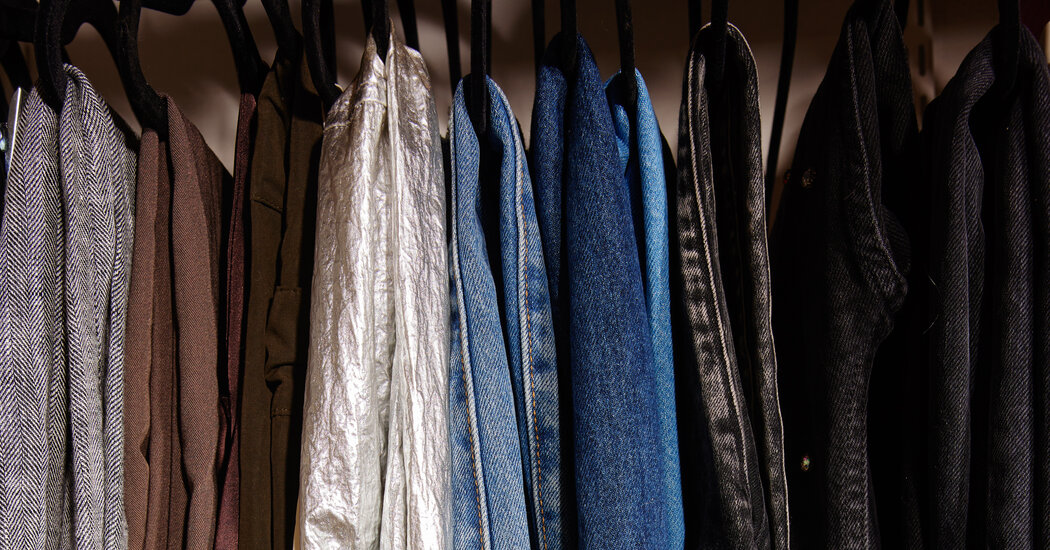
I am currently a senior in college, and I have put on a little weight, which means I’m not fitting into some of my pants as I used to. I’m happy with how I look and have no desire to change my weight, but I have some really cute pants that I hesitate to get rid of in case I can fit into them in the future. At what point are they just taking up closet space? Should I just say goodbye? — Peter, Ithaca, N.Y.
To keep or not to keep one’s old clothes as one proceeds through life — and especially through major life stages — is a perennial conundrum. It is, after all, not just a question of “Will I/can I ever wear it again,” but one of money, practicality, history and identity. Our clothes contain multitudes of memories and associations, as well as versions of our past selves, all of which are deeply entwined with questions of self-image and body size. Those can be awfully hard to toss away.
One of the best recent illustrations of this phenomenon can be found in a book by Kim A. Poldner, a professor at The Hague University of Applied Sciences, called “Love Letters to My Clothes,” which features still lives of garments, along with poetic memories of each, much like an autobiography in cloth. Then there’s Lorelei Vashti’s “Dress, Memory: A Memoir of My Twenties in Dresses,” which was inspired by a question very much like your own.
Yet no one can keep every single piece of old clothing. That way hoarding lies. So how do you decide what is worth saving, especially when fit is an issue? It is possible to outgrow a garment in more ways than one.
You could go the Marie Kondo route and ask yourself, “Does this (still) bring me joy?” Does a garment bring you joy to wear or simply joy to consider: to see and remember the wonderful times in which you wore it or even the artistry with which it is made.
You might also ask, “Does this make me feel bad?” Hoping you can wear something again when the chances are low can be a fast route to unhappiness. Seeing the item can be a constant reminder of a different time in your life, and a different you. Holding on to it can seem like clinging to the past rather than embracing the present, like an exercise in wishful thinking and regret rather than reconciliation and discovery. And that is definitely not worth it.






